Discover The Thomistic Institute
The Thomistic Institute

The Thomistic Institute
Author: The Thomistic Institute
Subscribed: 1,190Played: 157,468Subscribe
Share
© All rights reserved 183125
Description
The Thomistic Institute exists to promote Catholic truth in our contemporary world by strengthening the intellectual formation of Christians at universities, in the Church, and in the wider public square. The thought of St. Thomas Aquinas, the Universal Doctor of the Church, is our touchstone.
The Thomistic Institute Podcast features the lectures and talks from our conferences, campus chapters events, intellectual retreats, livestream events, and much more.
Founded in 2009, the Thomistic Institute is part of the Pontifical Faculty of the Immaculate Conception at the Dominican House of Studies in Washington, DC.
The Thomistic Institute Podcast features the lectures and talks from our conferences, campus chapters events, intellectual retreats, livestream events, and much more.
Founded in 2009, the Thomistic Institute is part of the Pontifical Faculty of the Immaculate Conception at the Dominican House of Studies in Washington, DC.
1858 Episodes
Reverse
Prof. Joshua Hochschild shows how Dante’s Paradiso offers a philosophically rich, Thomistic, and Neoplatonic vision of the cosmos in which goodness, truth, beauty, and peace name both God’s own life and the ordered, participatory structure of creation that our rational desire seeks to know and love.This lecture was given on November 13th, 2025, at University of Louisiana at Lafayette.For more information on upcoming events, visit us at thomisticinstitute.org/upcoming-events.About the Speakers:Joshua Hochschild is Professor of Philosophy at Mount St. Mary’s University, where he also served six years as the inaugural Dean of the College of Liberal Arts. His primary research is in medieval logic, metaphysics, and ethics, with broad interest in liberal education and the continuing relevance of the Catholic intellectual tradition. He is the author of The Semantics of Analogy: Rereading Cajetan’s De Nominum Analogia (2010), translator of Claude Panaccio’s Mental Language: From Plato to William of Ockham (2017), and co-author of A Mind at Peace: Reclaiming an Ordered Soul in the Age of Distraction (2017). His writing has appeared in First Things, Commonweal, Modern Age and the Wall Street Journal. For 2020-21 he served as President of the American Catholic Philosophical Association.Keywords: Aquinas And Dante, Cardinal And Theological Virtues, Divine Names And Neoplatonism, Goodness Truth And Beauty, Paradiso And Cosmology, Peace As Divine Name, Thomistic Reading Of Dante, Transcendentals And Being, Virtues In The Beatific Vision
Prof. George Corbett presents Dante’s Divine Comedy as a transformative “journey of desire” in which the passionate intellect—shaped by Virgil (reason) and Beatrice (grace)—leads the sinner from the dark wood of sin and ignorance through Hell and Purgatory to the ordered love and beatific hope of Paradise.This lecture was given on November 20th, 2025, at Trinity College Dublin.For more information on upcoming events, visit us at thomisticinstitute.org/upcoming-events.About the Speakers:George Corbett is Professor of Theology at the University of St Andrews, and the Director of Cephas (a Thomistic Centre for Philosophy and Scholastic Theology). He researches and teaches theology and the arts (with specialisms in Dante studies, sacred music, and theological aesthetics) and historical theology (with specialisms in medieval theology, Aquinas’s theology and its influence, and Catholic theology). His books include Dante’s Christian Ethics (2020), Dante and Epicurus (2013), and, as editor or co-editor, Vertical Readings in Dante’s ‘Comedy’ (2015-18), Annunciations: Sacred Music for the Twentieth-Century (2019), and Music and Spirituality: Theological Approaches, Empirical Methods, and Christian Worship (2024).Keywords: Dante’s Divine Comedy, Desire And Beatitude, Free Will, Inferno Purgatorio Paradiso, Passionate Intellect, Pilgrims Of Hope, Reason And Grace, Thomistic Readings Of Dante, Virgil And Beatrice, Virtue and Vice
Dr. Robert McNamara presents Edith Stein and Thomistic personalism as a unified vision in which the human face reveals the mystery of the person as both substantial “what” and subjective “who,” integrating Aquinas’s account of rational nature with phenomenological insights into consciousness, interiority, and personal encounter.This lecture was given on March 6th, 2025, at Farm Street Church.For more information on upcoming events, visit us at thomisticinstitute.org/upcoming-events.About the Speakers:Dr. Robert McNamara is an associate professor of philosophy at Franciscan University of Steubenville, associate series editor of Edith Stein Studies, associate scholar of the Hildebrand Project, associate member of faculty at the International Theological Institute and the Maryvale Institute, and a founding member of the Aquinas Institute of Ireland. Robert researches anthropological and metaphysical questions in medieval and phenomenological thinkers, especially as both bear reference to philosophical personalism. He has studied physics and computing, philosophy and theology, and received his Ph.D. for research in the thought of Edith Stein and Thomas Aquinas. Robert is originally from Galway, Ireland and now lives in Steubenville, Ohio (though currently residing in Gaming, Austria) with his wife, Caroline, and their four children, Vivian, John, Catherine, and Oran.Keywords: Aquinas On The Person, Carol Wojtyła And Personalism, Consciousness And Self-Awareness, Edith Stein, Imago Dei And Personalism, Interior Castle Of The Soul, Phenomenology, Thomistic Personalism, The Human Face
Prof. W. Scott Cleveland explains how food and alcohol can either undermine or promote true happiness, arguing that gluttony is a disordered desire for the pleasures of eating and drinking that disrupts health, friendship, and virtuous living rather than their proper role in a flourishing, festal life.This lecture was given on November 13th, 2025, at University of Alabama.For more information on upcoming events, visit us at thomisticinstitute.org/upcoming-events.About the Speakers:Professor Scott Cleveland received his PhD in philosophy (Baylor University) and is Associate Professor of Philosophy and Catholic Studies at the University of Mary (Bismarck, ND). His research interests are in ethics, moral psychology, and philosophy of religion. He is especially interested in the study of virtues and emotions, the relation between the two, and the role of each in the moral and intellectual life. His thought is deeply influenced by Aristotle and Aquinas and his work has appeared in journals such as American Catholic Philosophical Quarterly, Res Philosophica, Religious Studies, Religions, and the Proceedings of the American Catholic Philosophical Association. He is the co-editor with Adam Pelser of Faith and Virtue Formation: Essays in Aid of Becoming Good with Oxford University Press.Keywords: Alcohol And Sobriety, Aquinas On Gluttony, Aristotelian Eudaimonia, Ethics Of Eating, Feasting And Festivity, Food And Friendship, Gluttony And Virtue, Vices Of Eating And Drinking
Dr. R.J. Snell argues that the real epidemic behind student anxiety, boredom, and frenzied achievement is not laziness but sloth—a refusal of responsibility and a sadness at the divine good—that resists joy, commitment, and genuine happiness.This lecture was given on December 1st, 2025, at New York University.For more information on upcoming events, visit us at thomisticinstitute.org/upcoming-events.About the Speakers:R. J. Snell is Editor-in-Chief of Public Discourse and Director of Academic Programs at the Witherspoon Institute in Princeton, NJ. He has been a visiting instructor at Princeton University, where he is also executive director of the Aquinas Institute for Catholic Life. He's written books and articles on Natural Law, Education, Bernard Lonergan, Boredom, Subjectivity, and Sexual Ethics for a variety of publications.Keywords: Acedia And Sloth, Aquinas On Joy, Boredom And Busyness, Contemporary Student Anxiety, Contemplation And Leisure, Judge Holden in Blood Meridian, Sloth As Sadness At The Good, Thomistic Spiritual Theology, True Festivity And Eucharist
Fr. Gregory Pine shows how money, pleasure, and influence all fail as ultimate goals and argues that true happiness comes from living in accord with our nature as creatures made for communion with God through the theological virtues of faith, hope, and charity.This lecture was given on November 19th, 2025, at University of South Florida.For more information on upcoming events, visit us at thomisticinstitute.org/upcoming-events.About the Speakers:Fr. Gregory Pine, O.P., is an instructor of dogmatic and moral theology at the Dominican House of Studies and the Assistant Director of the Thomistic Institute. He holds a doctorate from the University of Fribourg (Switzerland). He is the author of Prudence: Choose Confidently, Live Boldly and Your Eucharistic Identity: A Sacramental Guide to the Fullness of Life, and is co-author of Credo: An RCIA Program and Marian Consecration with Aquinas.His writing also appears in Aleteia, Magnificat, and Ascension’s Catholic Classics series. In addition to the TI podcast, he regularly contributes to the podcasts Godsplaining and Pints with Aquinas, and Catholic Classics. Keywords: Charity And Happiness, Faith Hope And Charity, Fulfillment, Happiness, Human Nature, Natural Law And Teleology, Money Pleasure And Influence, Theological Virtues, True Happiness In God, University Student Life
Prof. Jerome Foss argues that what Americans call the “Bill of Rights” is not a true bill of rights but a set of constitutional amendments best understood within a Federalist—and broadly Thomistic—vision of law, liberty, and the common good that resists reducing politics to individual rights talk.This lecture was given on November 4th, 2025, at Washington & Lee University.For more information on upcoming events, visit us at thomisticinstitute.org/upcoming-events.About the Speakers:Jerome C. Foss is Professor of Politics, Endowed Director of the Center for Catholic Thought and Culture, and Director of the SVC Core Curriculum at Saint Vincent College in Latrobe, Pennsylvania. Foss earned his BA from the University of Dallas and his MA and PhD from Baylor University. His research focuses on Catholic political thought, American political thought, and literature and political philosophy. His most recent book, Flannery O'Connor and the Perils of Governing by Tenderness, brings these interests together. He has also published on the history of political philosophy, the U.S. Constitution, Constitutional Law, James Madison, and Abraham Lincoln. He is currently working on a scholarly book on the first ten amendments to the Constitution (commonly known as the Bill of Rights) and a book for a more general Catholic audience on the Declaration of Independence. Foss enjoys teaching a variety of courses, including courses on the Constitutional Convention and Shakespeare as a political thinker. As Director of the CCTC, Foss helps administer the college's Benedictine Leadership Studies Program, has developed and led the colleges summer program in Rome, founded and edits an academic journal entitled Conversatio, and organizes conferences, seminars, and other events.Keywords: American Constitutionalism, Anti Federalists And Rights, Bill Of Rights, Federalist Political Theory, James Madison, Natural Law And Natural Rights, Republican Government Thomistic Political Thought, United States Constitution
This lecture was given on October 9th, 2025, at University of Michigan.For more information on upcoming events, visit us at thomisticinstitute.org/upcoming-events.About the Speakers:Joshua Hochschild is Professor of Philosophy at Mount St. Mary’s University, where he also served six years as the inaugural Dean of the College of Liberal Arts. His primary research is in medieval logic, metaphysics, and ethics, with broad interest in liberal education and the continuing relevance of the Catholic intellectual tradition. He is the author of The Semantics of Analogy: Rereading Cajetan’s De Nominum Analogia (2010), translator of Claude Panaccio’s Mental Language: From Plato to William of Ockham (2017), and co-author of A Mind at Peace: Reclaiming an Ordered Soul in the Age of Distraction (2017). His writing has appeared in First Things, Commonweal, Modern Age and the Wall Street Journal. For 2020-21 he served as President of the American Catholic Philosophical Association.Keywords: Aristotelian Epistemology, Conscience And First Principles, Development Of Doctrine, Intellectual Virtue And Noûs, John Henry Newman, Liberalism In Religion, Newman’s Grammar Of Assent, Newman’s Idea Of A University, Reason Faith And Dogma
Fr. Anselm Ramelow explains how, in a Thomistic framework, miracles are graded by how they surpass nature and why only God can perform the highest-level miracles of creation and resurrection, while finite spirits—including demons—can produce lesser “signs” that must be carefully discerned.This lecture was given on April 5th, 2025, at St. Albert's Priory. For more information on upcoming events, visit us at thomisticinstitute.org/upcoming-events.About the Speakers:Fr. Anselm Ramelow, O.P., a native of Germany, teaches philosophy at the Dominican School of Philosophy and Theology in Berkeley, California, where he is also currently the chair of the philosophy department. He is also a member of the Core Doctoral Faculty at the Graduate Theological Union in Berkeley and the Academy of Catholic Theology. He obtained his doctorate under Robert Spaemann in Munich on Leibniz and the Spanish Jesuits (Gott, Freiheit, Weltenwahl, Leiden: E. J. Brill, 1997) and did theological work on George Lindbeck and the question of a Thomist philosophy and theology of language (Beyond Modernism? - George Lindbeck and the Linguistic Turn in Theology, Neuried: Ars Una 2005). Other works include Thomas Aquinas: De veritate Q. 21-24; Translation and Commentary (Hamburg: Meiner, 2013) and God: Reason and Reality (Basic Philosophical Concepts) (Munich: Philosophia Verlag, 2014), as editor and contributor. Articles appeared in Historisches Wörterbuch der Philosophie, Archiv für Begriffsgeschichte, Nova et Vetera, American Catholic Philosophical Quarterly and Angelicum. Areas of research and teaching include Free Will, the History of Philosophy and Philosophical Aesthetics. He has worked on a philosophical approach to Miracles and other topics of the philosophy of religion, and more recently the philosophy of technology.Keywords: Aquinas On Miracles, Demonic Signs And Wonders, Discernment Of Spirits, Finite Spiritual Causes, Levels Of Miracles, Natural Law And Suspension, Omnipotence And Creation, Possibility Of Demonic Miracles, Thomistic Philosophy Of Miracles
Prof. Chad Pecknold shows how St. Augustine’s Confessions should be read as a Catholic, sacramental account of conversion in which the “altar of the heart” is turned toward God and united to Christ’s Eucharistic sacrifice, rather than as a merely emotional, garden-conversion memoir.This lecture was given on October 7th, 2025, at Vanderbilt University.For more information on upcoming events, visit us at thomisticinstitute.org/upcoming-events.About the Speakers:Dr. Chad C. Pecknold earned his PhD in Systematic Theology at the University of Cambridge in England. He is a Catholic theologian and for the last 16 years he has been a professor of theology at The Catholic University of America in Washington DC, teaching in the areas of fundamental theology, Christian anthropology and political theology. Since 2022, he has been named by The Catholic Herald as one of the most influential Catholic thought leaders and authors in the United States. An internationally recognized scholar of Augustine’s theological and political thought, Pecknold has authored or edited five books — including Christianity and Politics: A Brief Guide to the History and The T&T Clark Companion to Augustine and Modern Theology —and authored dozens of peer-reviewed journal articles. He edits the Sacra Doctrina series for CUA Press with Fr. Thomas Joseph White O.P. He has served the public by educating thousands of students at the Institute of Catholic Culture, and also through his many columns at First Things, National Review, Wall Street Journal, New York Post, and The Catholic Herald. He has been an invited guest on NPR's "All Things Considered," Fox News, ABC News, and has been a frequent guest on EWTN News Nightly, World Over Live with Raymond Arroyo, and various other EWTN programs, such as the celebrated series on Heresies. Pecknold has also led institutions, serving as Chair of the American Academy of Catholic Theology from 2015-2020, expanding and professionalizing a guild of theologians faithful to the Magisterium. He also serves in non-profit board leadership as Board Director for Americans United for Life, Board Member for Pro-Life Partners, Board Member for the Classical Learning Test, Fellow of the Institute for Human Ecology, and as Resident Theologian at the Institute for Faith and Public Culture at the Basilica of Saint Mary — the oldest Catholic Church in the Commonwealth of Virginia. While currently finishing a short book on the Catholic understanding of Augustine’s Confessions, Pecknold continues to work on a long term project on Augustine’s City of God and the Christian order of things.He and his wife Dr. Sara Pecknold (who teaches Music History at Christendom College) have five children, including adorably identical twin toddler girls whose names they frequently confuse!Keywords: Altar Of The Heart, Augustine’s Confessions, Bad And Good Sacrifice, Eucharistic Conversion, Fire On The Altar, Platonic Ascent And Christ, Prof. Chad Pecknold, Restless Heart And Worship, St. Augustine And Monica, Sacramental Reading Of Augustine
Fr. Irenaeus Dunlevy introduces the medieval Dominican mystics of the Rhineland and, in dialogue with Aquinas and Pseudo-Dionysius, shows how their often strikingly apophatic language about abyss, detachment, and “ground” can be critically integrated into a Trinitarian, Eucharistic vision of Christian mystical union.This lecture was given on May 3rd, 2025, at Dominican House of Studies.For more information on upcoming events, visit us at thomisticinstitute.org/upcoming-events.Fr. Irenaeus Dunlevy, O.P. is a Coordinator for Campus Outreach at the Thomistic Institute in Washington, DC. He has served as a parochial vicar at St. Pius V Church in Providence, RI, as well as an adjunct professor and assistant chaplain at Providence College. He originates from Columbus, OH, studied architecture in Virginia and Switzerland, and practiced in the DC area before entering the Order of Preachers in 2013. He was ordained a priest in 2020 at the Dominican House of Studies during the quarantine. In his work with the Thomistic Institute, he has given talks on the virtue of penance, loving God with the mind, and the intersection of theology and architecture. He often travels the country visiting Thomistic Institute Campus Chapters, leading seminars that help students grasp Thomistic concepts. Additionally, he coordinates the TI's intellectual retreat programming, which affords students time to pray and integrate into their lives Thomistic theology and philosophy. Keywords: Apophatic Theology, Dominican Mysticism, Eucharistic Devotion, Meister Eckhart, Mystical Union With God, Pseudo-Dionysius, Rhineland Dominican Mystics, Thomas Aquinas, Trinity And The Soul
Dr. Bronwen McShea uncovers the rich but often forgotten history of Catholic women in the arts and sciences, showing how figures from late antiquity through the early modern period—nuns, scholars, patrons, and university professors—have long made serious intellectual and cultural contributions within the Catholic tradition.This lecture was given on October 16th, 2025, at The United States Naval Academy.For more information on upcoming events, visit us at thomisticinstitute.org/upcoming-events.About the Speakers:Bronwen McShea is a historian of Catholicism from medieval to modern times and is the author of three books: Women of the Church: What Every Catholic Should Know (Ignatius Press, 2024); La Duchesse: The Life of Marie de Vignerot, Cardinal Richelieu's Forgotten Heiress Who Shaped the Fate of France (Pegasus Books, 2023); and Apostles of Empire: The Jesuits and New France (Nebraska Press, 2019). Her reviews, articles, and essays have also appeared in The Wall Street Journal, First Things, America Magazine, The Journal of Religious History, and many other popular and academic periodicals. She has held research and teaching positions at Columbia University, Princeton University, Loyola University Chicago, and several other institutions. She holds a Ph.D. in Early Modern History from Yale University and both an M.T.S. in the History of Christianity and B.A. in Intellectual History from Harvard University.Keywords: Catholic Women And Scholarship, Catholic Women In Science, Early Modern Catholic Women, Hildegard Of Bingen, Laura Bassi And Bologna, Maria Gaetana Agnesi, Medieval Nuns And Learning, Renaissance Humanism, Women Of The Church
Prof. Christopher Tollefsen argues from a Thomistic natural law perspective that it is always morally wrong to intend the death of an innocent human being, contending that this absolute norm binds both private individuals and public authorities alike.This lecture was given on November 15th, 2025, at University of FloridaFor more information on upcoming events, visit us at thomisticinstitute.org/upcoming-events.About the Speakers:Christopher Tollefsen is Professor of Philosophy at the University of South Carolina. He has published over 100 articles in journals and edited collections, and a similar number of popular essays in venues such as Public Discourse, First Things, and National Review. He is the author of Lying and Christian Ethics and the forthcoming Killing and Christian Ethics, and is co-author of The Way of Medicine: Ethics and the Healing Profession (with Dr. Farr Curlin) and Embryo: A Defense of Human Life (with Robert P. George). In 2019-20, he served as a Commissioner on the State Department’s Commission on Unalienable Rights. He has twice been a Visiting Fellow in the James Madison Program at Princeton University, and in 2024-25 was a Visiting Fellow at the DeNicola Center for Ethics and Culture at the University of Notre Dame.Keywords: Absolute Prohibition Of Killing, Augustine And Aquinas, Double Effect Principle, Ethics Of Self-Defense, Human Dignity And Life, Natural Law Theory, Public Authority And Violence, Thomistic Moral Theology, War And Capital Punishment
Prof. Marshall Bierson contrasts Thomistic Catholic ethics with utilitarian and Kantian moral theories by arguing that the good is fundamentally an activity of loving persons rather than a state of affairs like aggregate happiness or an abstract form of rational nature.This lecture was given on January 23rd, 2026, at Washington & Lee University.For more information on upcoming events, visit us at thomisticinstitute.org/upcoming-events.About the Speakers:Marshall Bierson is an assistant professor of philosophy at the Catholic University of America. His research centers on the intersection of ethics and philosophical anthropology. He is particularly focused on the work of Elizabeth Anscombe and in exploring how her Thomisticly inflected philosophical psychology clarifies moral absolutes.Keywords: Aristotelian Thomism, Catholic Ethics, Catholic Moral Philosophy, Intrinsic And Extrinsic Value, Kantian Rational Nature, Love And The Good, Pleasure And Moral Value, Thomistic Axiology, Utilitarianism And Happiness
Prof. Kenneth Kemp reexamines the Scopes “Monkey Trial” to show that it has been mythologized into evidence of a supposed war between science and religion, arguing instead that the real conflicts concerned constitutional law, educational policy, and competing theological and philosophical visions within Christianity.This lecture was given on October 4th, 2023, at John Hopkins University .For more information on upcoming events, visit us at thomisticinstitute.org/upcoming-events.About the Speakers:Kenneth W. Kemp is an emeritus professor of philosophy at the University of St. Thomas in St. Paul, Minnesota. After receiving an MA in the History and Philosophy of Science and a PhD in Philosophy from the University of Notre Dame, he taught philosophy, first at the US Air Force Academy and last for many years at the University of St. Thomas. His research interests have included ethics as well as historical and philosophical aspects of the relation between science and religion. His published works include The War That Never Was: Evolution & Christian Theology (Cascade, 2020) and The Origins of Catholic Evolutionism, 1831–1950 (Catholic University of America Press, 2025).Keywords: Anti-Evolution Laws, Catholic Responses To Evolution, Clarence Darrow,Constitutional Law, Myth Of Warfare Thesis, Public School Education, Scopes Monkey Trial, Science And Religion, Tennessee Butler Act, William Jennings Bryan
Prof. Jonathan I. Lunine recounts his life as a planetary scientist, tracing how early inspirations from Carl Sagan and the space race led to his work on major NASA missions exploring the solar system and distant worlds, from Voyager and Cassini to Juno and Europa Clipper.This lecture was given on January 14th, 2025, at Dominican House of Studies.For more information on upcoming events, visit us at thomisticinstitute.org/upcoming-events.About the Speakers:Jonathan Lunine is the Chief Scientist at NASA’s Jet Propulsion Laboratory and Professor of Planetary Science at Caltech in Pasadena, California. Beforehand, he was the David C. Duncan Professor in the Physical Sciences and Chair of the Department of Astronomy at Cornell University. Lunine is interested in how planets form and evolve, what processes maintain and establish habitability, and what kinds of exotic environments (methane lakes, etc.) might host a kind of chemistry sophisticated enough to be called "life". He pursues these interests through theoretical modeling and participation in spacecraft missions. He is co-investigator on the Juno mission now in orbit at Jupiter, using data from several instruments on the spacecraft, and on the MISE and gravity science teams for the Europa Clipper mission. He was on the Science Working Group for the James Webb Space Telescope, focusing on characterization of extrasolar planets and Kuiper Belt objects. Lunine has contributed to concept studies for a wide range of planetary and exoplanetary missions. Lunine is a member of the National Academy of Sciences and has participated in or chaired a number of advisory and strategic planning committees for the Academy and for NASA.Keywords: Apollo Program, Carl Sagan, Cassini–Huygens Mission, Europa Clipper, Juno Mission, Planetary Science, Titan And Saturn System, Voyager Missions, Worlds With Subsurface Oceans
Fr. Dominic Legge distinguishes the classical Catholic doctrine of creation from modern creationism by showing how a robust Thomistic account of God as the transcendent cause of all being avoids conflict with evolutionary science while deepening our understanding of what it means for the world to be created.This lecture was given on October 20th, 2025, at The Catholic University of America.For more information on upcoming events, visit us at thomisticinstitute.org/upcoming-events.About the Speakers:Fr. Dominic Legge is the President of the Pontifical Faculty of the Immaculate Conception and Associate Professor in Systematic Theology at the Pontifical Faculty of the Immaculate Conception in Washington, D.C. He is an Ordinary Member of the Pontifical Academy of St. Thomas Aquinas, and holds a J.D. from Yale Law School, a Ph.L. from the School of Philosophy of the Catholic University of America, and a doctorate in Sacred Theology from the University of Fribourg in Switzerland. He entered the Order of Preachers in 2001, after having practiced constitutional law for several years as a trial attorney for the U.S. Department of Justice. He has also taught at The Catholic University of America Law School and at Providence College. He is the author of The Trinitarian Christology of St. Thomas Aquinas (Oxford University Press, 2017).Keywords: Catholic Doctrine Of Creation, Creation And Evolution, Creation vs. Creationism, Faith and Science, Metaphysics Of Creation, Primary And Secondary Causality, Thomistic Philosophy, Universe And God
Prof. Karin Öberg reflects on her journey from atheism to Catholicism and explains how the vocation of a Catholic scientist and professor involves uniting rigorous scientific inquiry with the Catholic intellectual tradition in order to contemplate God through creation and to renew the life of the university.This lecture was given on January 15th, 2025, at Dominican House of Studies.For more information on upcoming events, visit us at thomisticinstitute.org/upcoming-events.About the Speakers:Professor Öberg obtained her B.Sc. in Chemistry from Caltech and her Ph.D. in Astronomy from the University of Leiden. She has taught at Harvard since 2013, where she is the Thomas Dudley Cabot Professor of the Natural Sciences. Her scholarship aims to uncover how chemical processes impact the outcome of planet formation, with special attention to the possible habitability of nascent planets. She has published over 250 refereed articles, including in Nature and Science. Professor Öberg has been awarded the Barry Prize by the American Academy of Sciences and Letters (2024), the Harnack Lectureship by the Max Planck Society (2022), a Simons Investigator Award (2019), the American Astronomical Society's Newton Lacy Pierce Prize (2016), a Packard Fellowship (2014), and a Alfred P. Sloan Fellowship (2014). She is the Vice President of the Angelicum Board, a Board Member of the Society of Catholic Scientists, a member of the American Academy of Catholic Scholars and Artists, and a frequent public speaker on questions of science and faith.Keywords: Catholic Intellectual Tradition, Catholic Professor, Conversion, Creation And Creator, Msgr. Georges Lemaître, Science And Faith, Thomas Aquinas, University And Truth, Vocation, Vocation Of A Catholic Scientist
Prof. Michael Dauphinais explains what contemporary culture needs to learn from Thomas Aquinas, arguing for a metaphysics of communion in which God, family, Church, and society are not locked in competition but share common goods that make each more fully alive.This lecture was given on September 22nd, 2025, at University of Florida.For more information on upcoming events, visit us at thomisticinstitute.org/upcoming-events.About the Speakers:Michael A. Dauphinais, Ph.D., serves as the Fr. Matthew Lamb Professor of Catholic Theology and the co-director of the Aquinas Center for Theological Renewal at Ave Maria University, Ave Maria, Florida. He has co-authored with Matthew Levering Knowing the Love of Christ: An Introduction to the Theology of Thomas Aquinas; Holy People, Holy Land: A Theological Introduction to the Bible; and The Wisdom of the Word: Biblical Answers to Ten Questions about Catholicism. He specializes in C.S. Lewis, the Bible, and St. Thomas Aquinas. He speaks frequently in both academic and popular settings, and particularly enjoys visiting Thomistic Institute student chapters. Dr. Dauphinais hosts The Catholic Theology Show podcast to help a wide audience discover the richness of coming to know and love God as he has revealed himself in Jesus Christ.Keywords: Common Good, Common Good versus Zero-Sum Competition, God’s Non-Competitive Action, Human Community, Metaphysics of Communion, Natural Law, Original Sin and False Image of God, Participated Goods in Family and Society, Thomistic View of Marriage and Family, Vision of God in Evangelium Vitae
Fr. Alan O’Sullivan unpacks Aquinas on the good life, explaining why wealth, power, fame, and pleasure cannot be our ultimate happiness and how true beatitude is found in virtuous activity ordered to God.This lecture was given on October 23rd, 2025, at Trinity College Dublin.For more information on upcoming events, visit us at thomisticinstitute.org/upcoming-events.About the Speakers:Fr. Alan O’Sullivan, O.P. (Trinity College) is currently the chaplain of Trinity College, Dublin. He is a member of the Irish province of the Order of Preachers who studied at Blackfriars, Oxford.Keywords: Aquinas on the Good Life, Beatitude and True Happiness, Epicureanism, Limits of Wealth Power and Fame, Pleasure and the Highest Good, Restlessness and Desire for More, Virtue and Ordered Pleasure, Worldly Goods, Ultimate Happiness


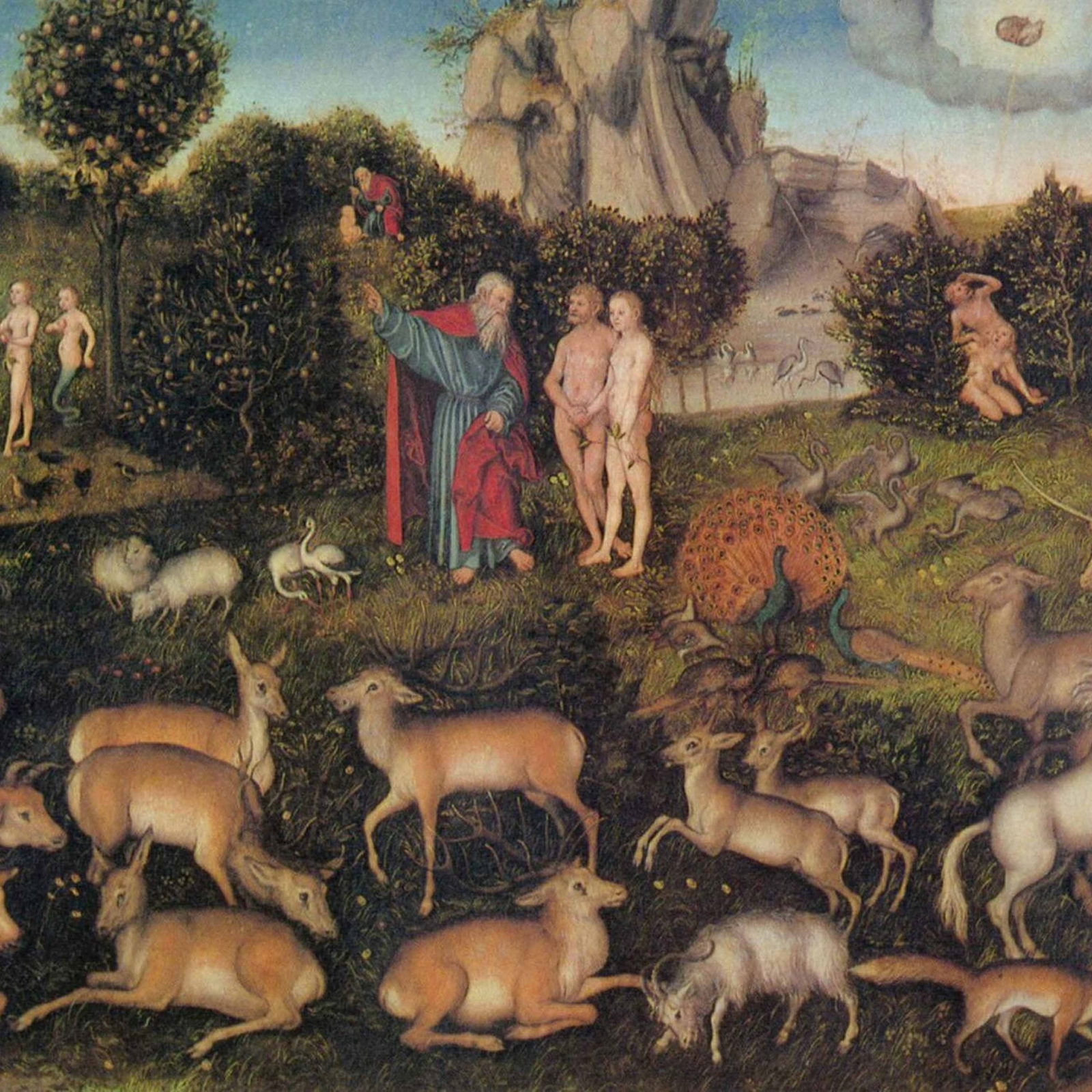




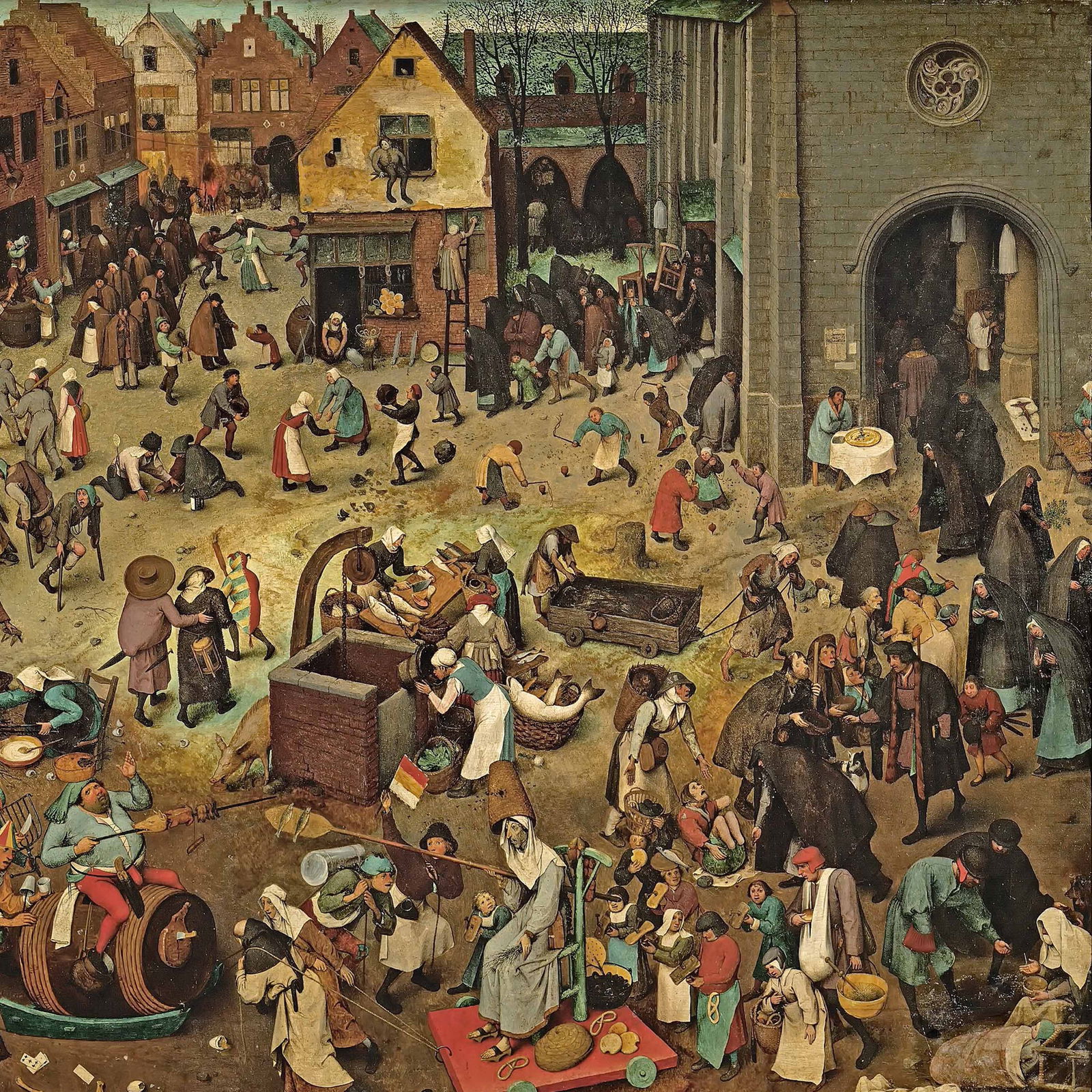
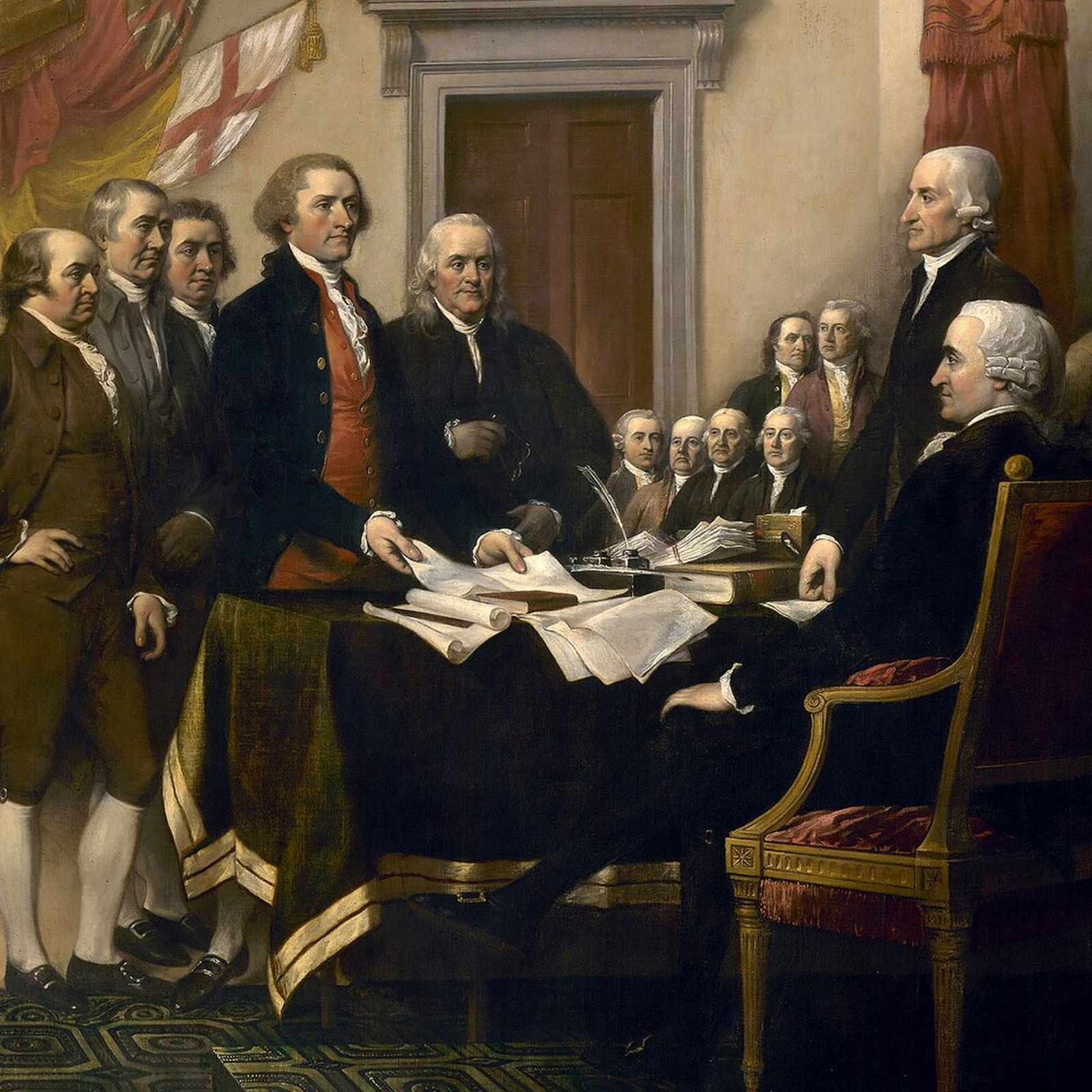






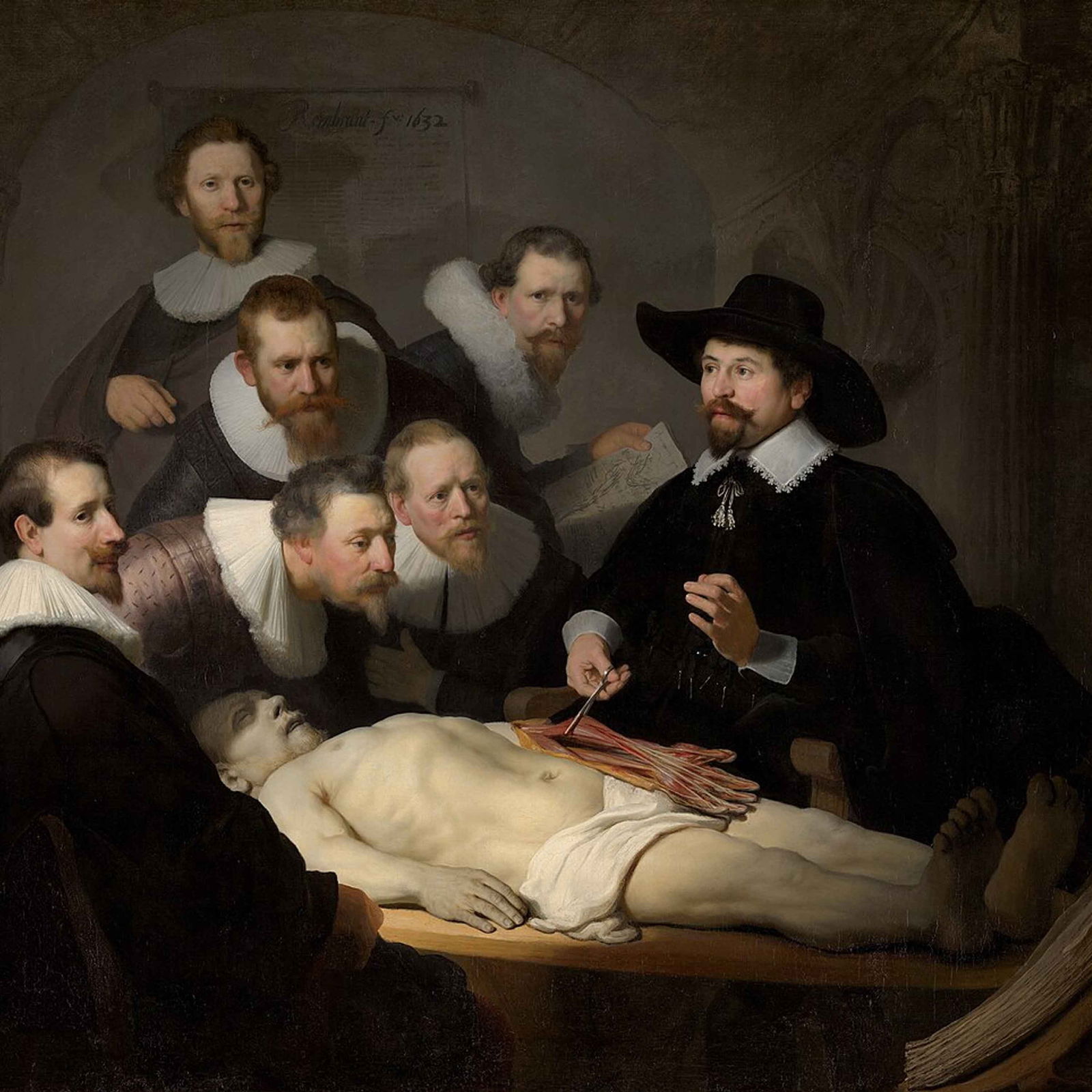
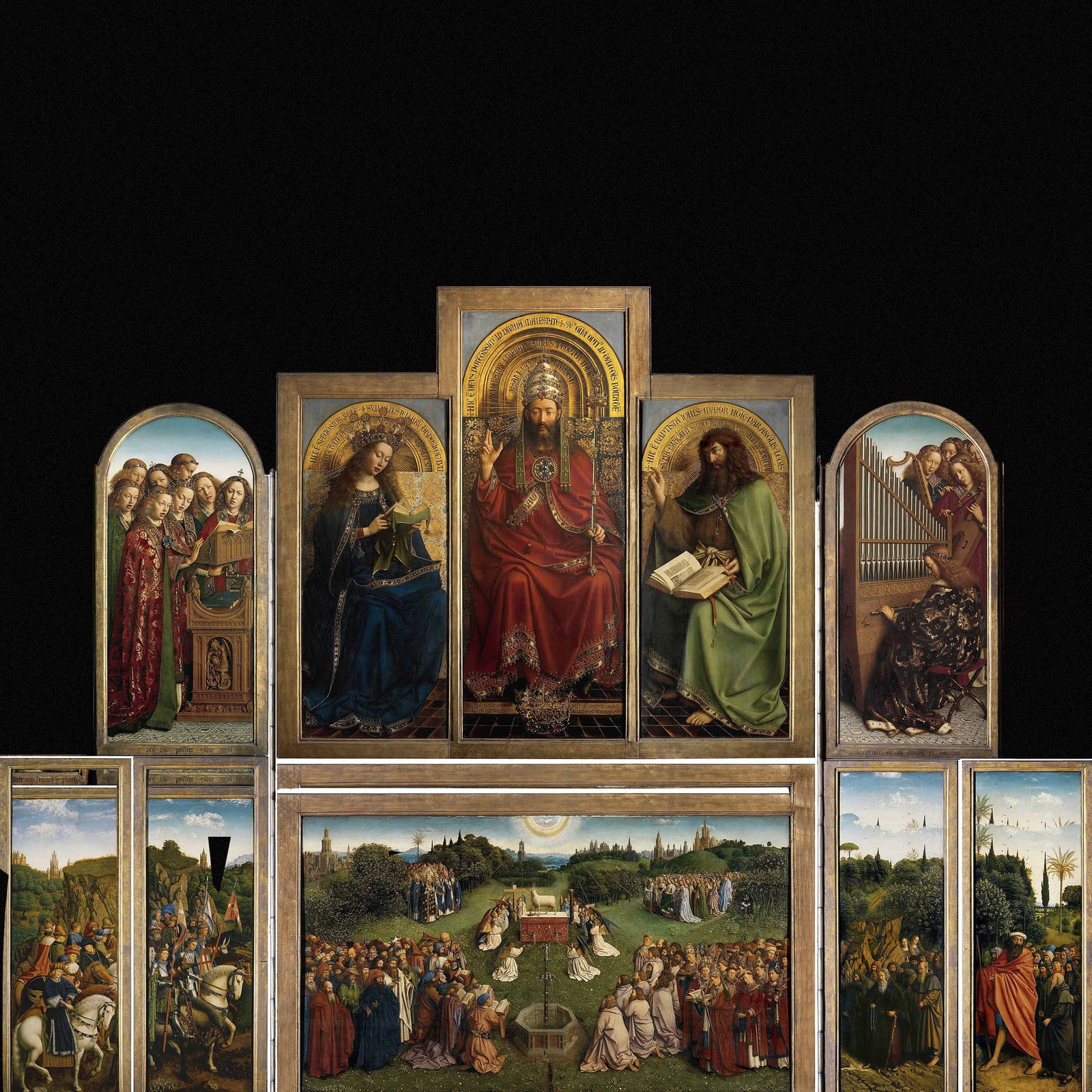
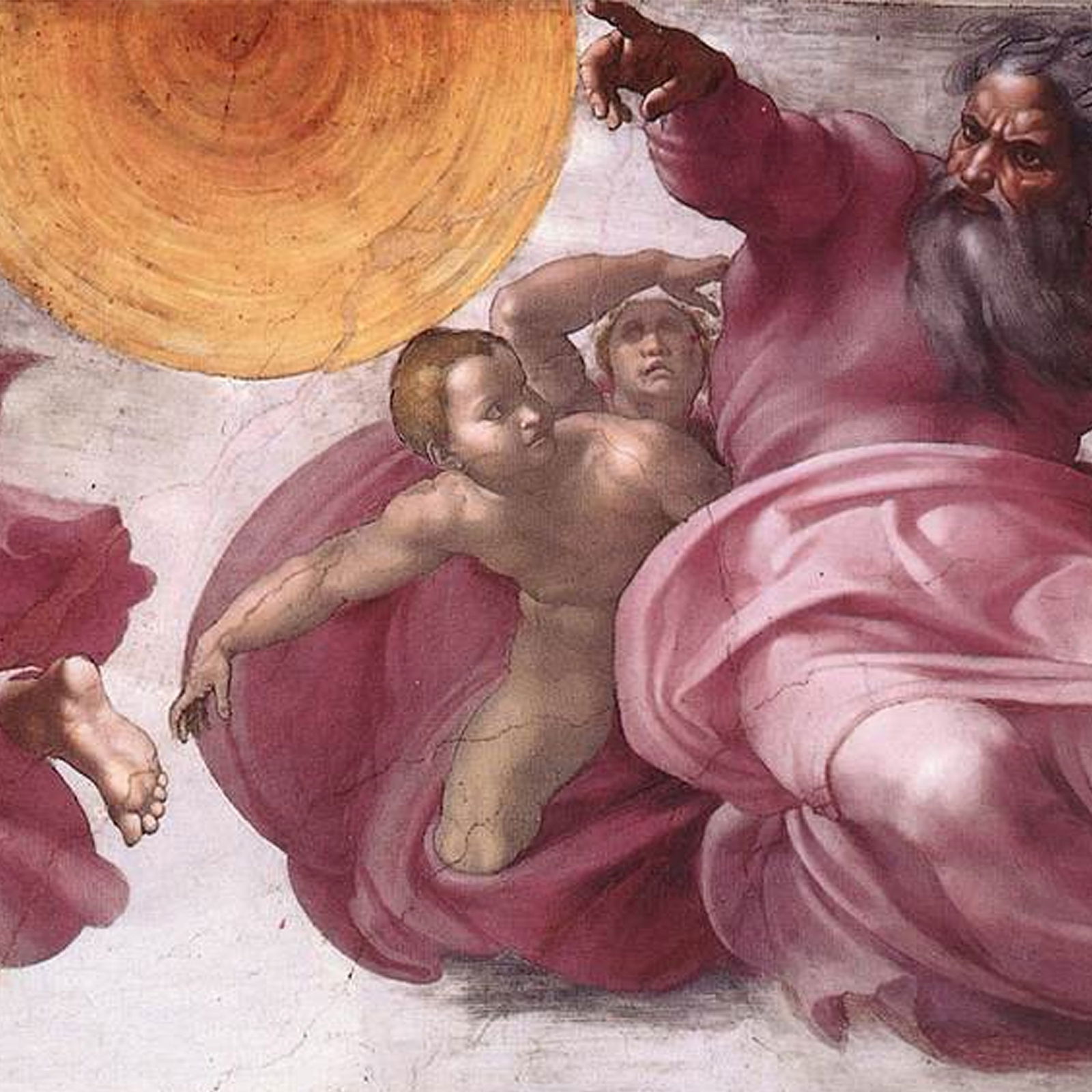

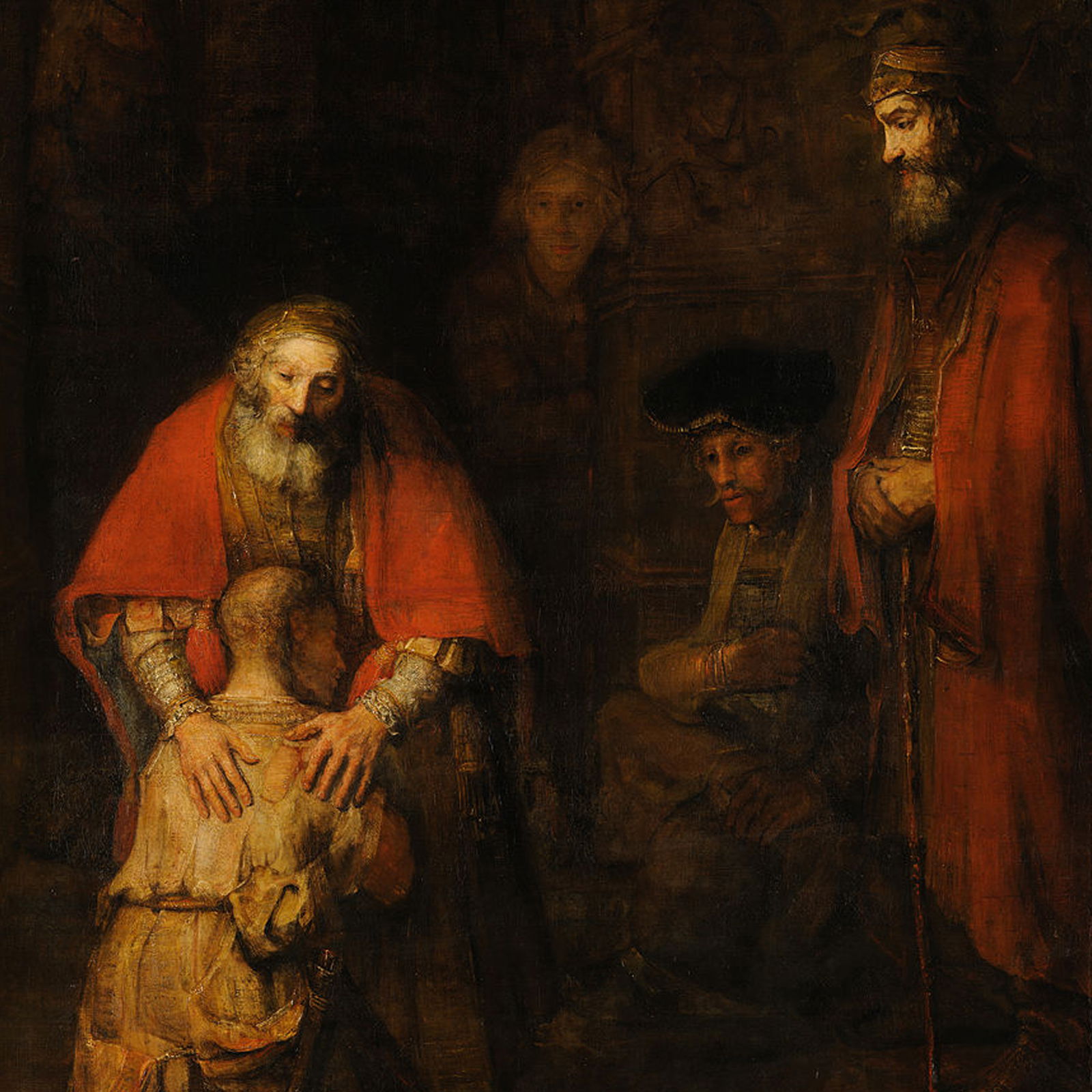

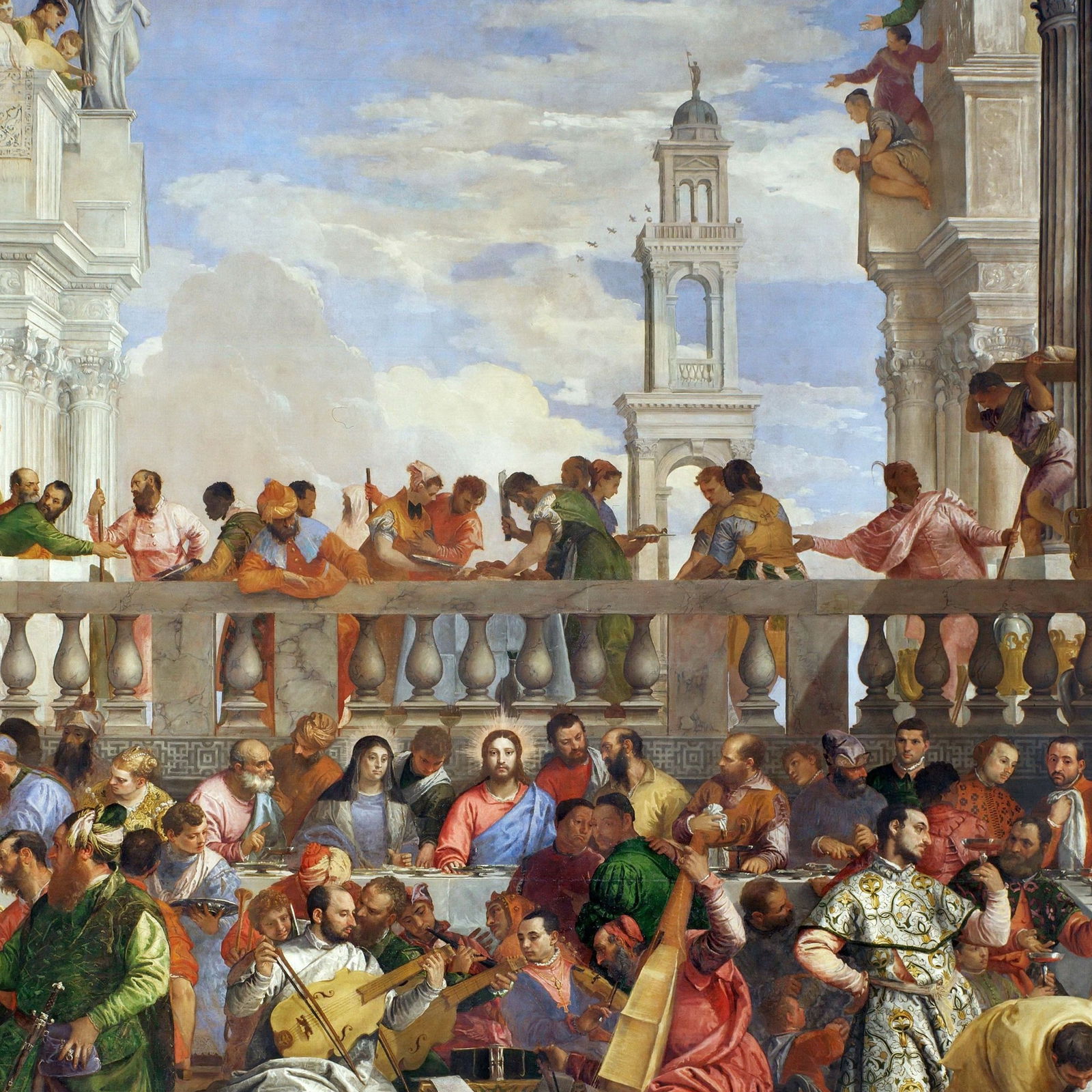



If a "good" acts against the good of a particular person it is not a common good because it is not common to every one. The common good must be truly good for every one. The only real Common Good is God for God alone is the cause of every existence and is the source and end of all that is truly good.
Is it good to be healthy through medicines derived from murdered children ie from aborted children? The answer is no. The pursuite of health can become evil if exalted above every thing else.
That Japanese fellow sounds a lot like de Chardin, no wonder you people find him appealing.
From Peter Kalkavage's "The Logic of Desire": "It seems odd that Hegel would devote so many pages to this boneheaded theory. Phrenology, however, plays a crucial role in Hegel's Science of experience. 39 It is the perfectly logical culmination of the instinct of observing reason, the drive to find spirit in a thing. As Hegel notes, "Observation has here reached the point where it openly declares what our concept of it was, namely, that the certainty of reason seeks its own self as an objective reality " [343]. In phrenology, in other words, observing reason becomes self-conscious. It sets out to find itself as pure mind in a blunt thing. Furthermore, the manifest absurdity of phrenology makes us aware of the not-so-evident absurdity in other, apparently scientific efforts (like those of physiognomy) to read the nature and workings of the human spirit in the human body (for example, in an individual's body-type or DNA). ... The phrenologist realizes that something as sublime as spir
where could I find or get access to his presentation or the hand outside mentioned?
This is spot on!!
Wow! Just great, thanks a lot. I had felt uneasy with neuroscience experiments but this helps clear the doubts. God bless